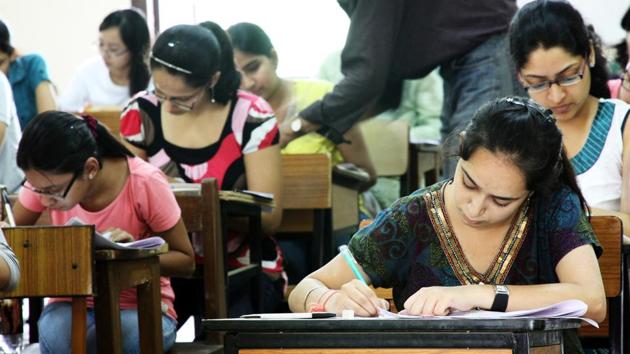Government considers exam-on-demand in universities
UGC issued a public notice asking various stakeholders including higher education institutions, students, teachers, and educationists to send their suggestions on exam reforms
The government is exploring the option of allowing students at universities to take exams when they are ready for them, and other examination reforms as part of an effort to move the academic system away from its current rote-learning mode.

Other reforms being considered include alternative models of examinations, and the use of technology in examinations.
The University Grants Commission (UGC), the apex regulator of universities, on Thursday issued a public notice asking various stakeholders including higher education institutions, students, teachers, and educationists to send their suggestions on exam reforms. “The commission has decided to get feedback and suggestions from all higher education institutions , controllers of examination, eminent educationists and public at large on specified themes for examination reforms,” said Rajnish Jain, secretary, UGC.
The commission has formed a committee to recommend and suggest other measures for exam reforms.
According to UGC officials, the first meeting of the committee is likely to be held on June 14.
The commission has also given various themes under which suggestions can be sent. For instance, the committee that has been formed will look into suggestions on the objectives of examination system, models of examination that can be followed in India, and structural and procedural changes needed . In addition to this, it has also sought feedback on grade and credit transfer processes, the moderation procedure, on-demand examination, internal examination and external examination. The committee will also look at the technological interventions required, whether there is a need to create a question bank, the need for minimum standardised infrastructure, and whether all graduates should appear for an ability test at the end of degree programme. Suggestions on the current evaluation process, including aspects related to the declaration of results, and the award of mark sheets and degrees have also been sought.
The committee will accept responses till June 22. Once finalised, the recommendations will apply to central, state, deemed and private universities.
The basic concept of an on-demand examination is that students can walk into the examination centre as and when they feel ready for the examination. The National Institute of Open School (NIOS) conducts such examinations. Indira Gandhi National Open University (IGNOU) also offers on demand examinations for some courses.
Currently, central universities such as Delhi University, JNU and others have final exams twice a year apart from regular internal assessments.
One reason why UGC is focusing on exam reform is because it wants universities and students to move away from the current examination system which largely evaluates the ability to learn by rote. “With a shift to learning outcomes we want to bring changes in the current system. The committee will look at the entire way in which continuous assessment is done,” said a senior UGC official.
“Exams should always be looked upon as a means of enabling students. Unfortunately in India we tend to look upon them as a device to disable students. Once this guiding principle is in place then you should learn to put in use radically out-of-the-box systems. Why should we have centrally prescribed system? There is a need to decentralise,” said Dinesh Singh, former Delhi University VC.












